Ethiopia afterthoughts: Did the camera turn me into just a tourist?
After a visit with farmers in Tigray and Amhara, a Susan Sontag quote gets under my skin.
A photographer friend posted a Susan Sontag quote recently on his Facebook page that I happened to read right after returning from a field visit to Ethiopia. It made me think hard about the 10 days I had just spent in the Amhara and Tigray regions, camera in hand.
”Essentially the camera makes everyone a tourist in other people’s reality, and eventually in one’s own,” said Sontag.
At first, I felt deflated: is that the sum of all that I had just experienced? A tourist’s skimming of a place? A snap here, a snap there with a heap of shots dumped into an album at the end?
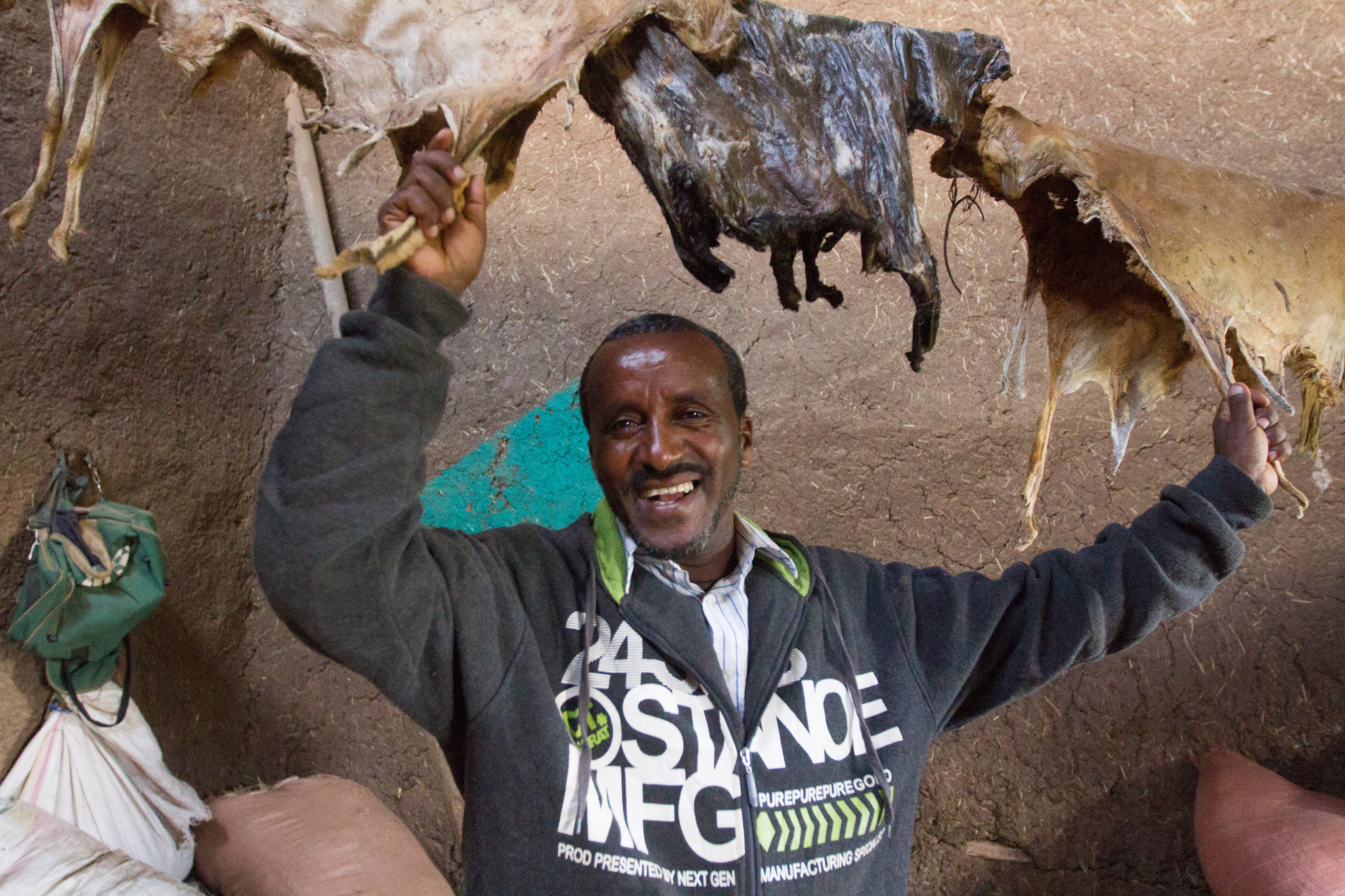
I thought back to Mulata Atsbeha, the farmer and skin trader, showing us all the steps required to preserve the goat and sheep hides that help support his family. His smile was iridescent. A loan through Oxfam’s and the World Food Programme’s R4 Rural Resilience initiative had allowed him to expand the small business—a boost that was helping him weather a severe drought that had killed all the crops he had planted this year.
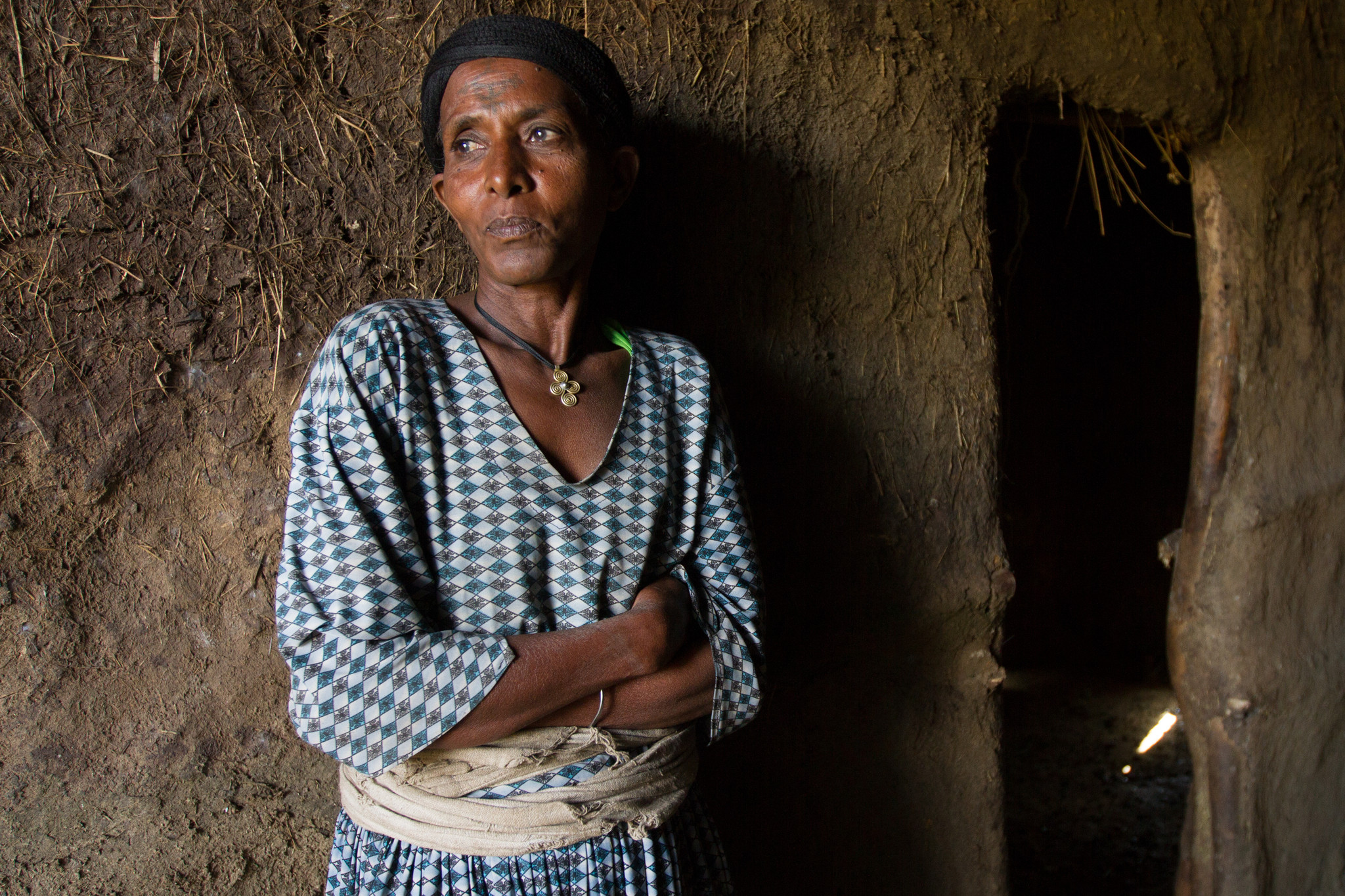
And there was Zewudie Dagnew, standing strong and determined in the afternoon light streaming through the door of her mud-walled home. A single mother with the youngest of her four children at her side (he assured us his mom was the best), she is now raising sheep also purchased with a loan through the R4 program.
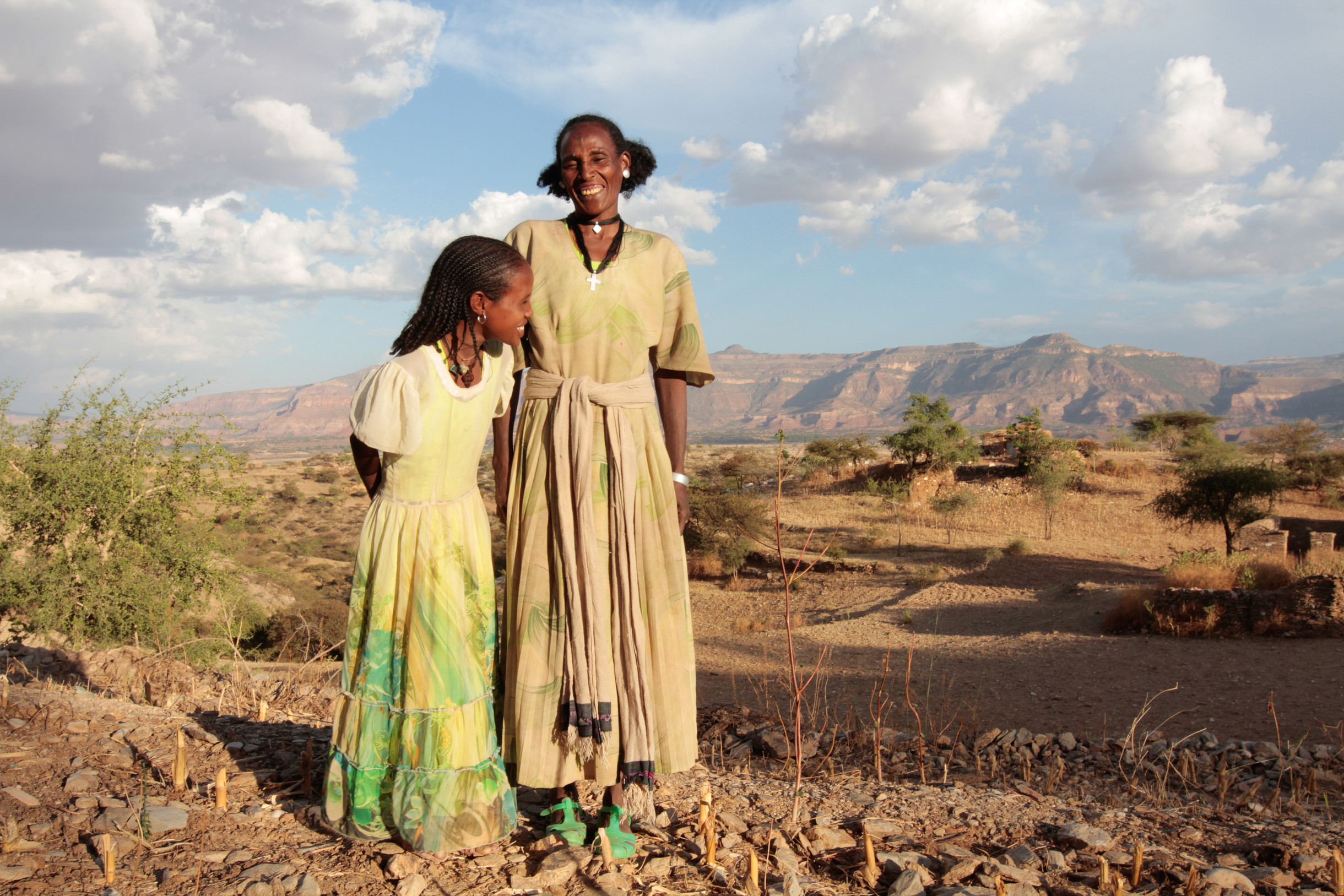
And then there was Medhin Reda and her daughter, Tekleweini, both of whom I have visited a couple of times over the years at their hillside house of stones—every one of which Reda and an older daughter lugged to the site themselves. Reda is a farmer, too, trying to coax a living from the dry, rocky fields where she grows corn and teff. For several years now, she has bought weather insurance through the R4 program to cover some of her crops if lack of rain stunts or kills them.
On this story-gathering visit, I was both note-taker and picture-taker, the latter being a new role for me. Did the camera really reduce me to being just a tourist in the lives of all these people who welcomed us into their homes, sharing their food, their worries, their dreams?
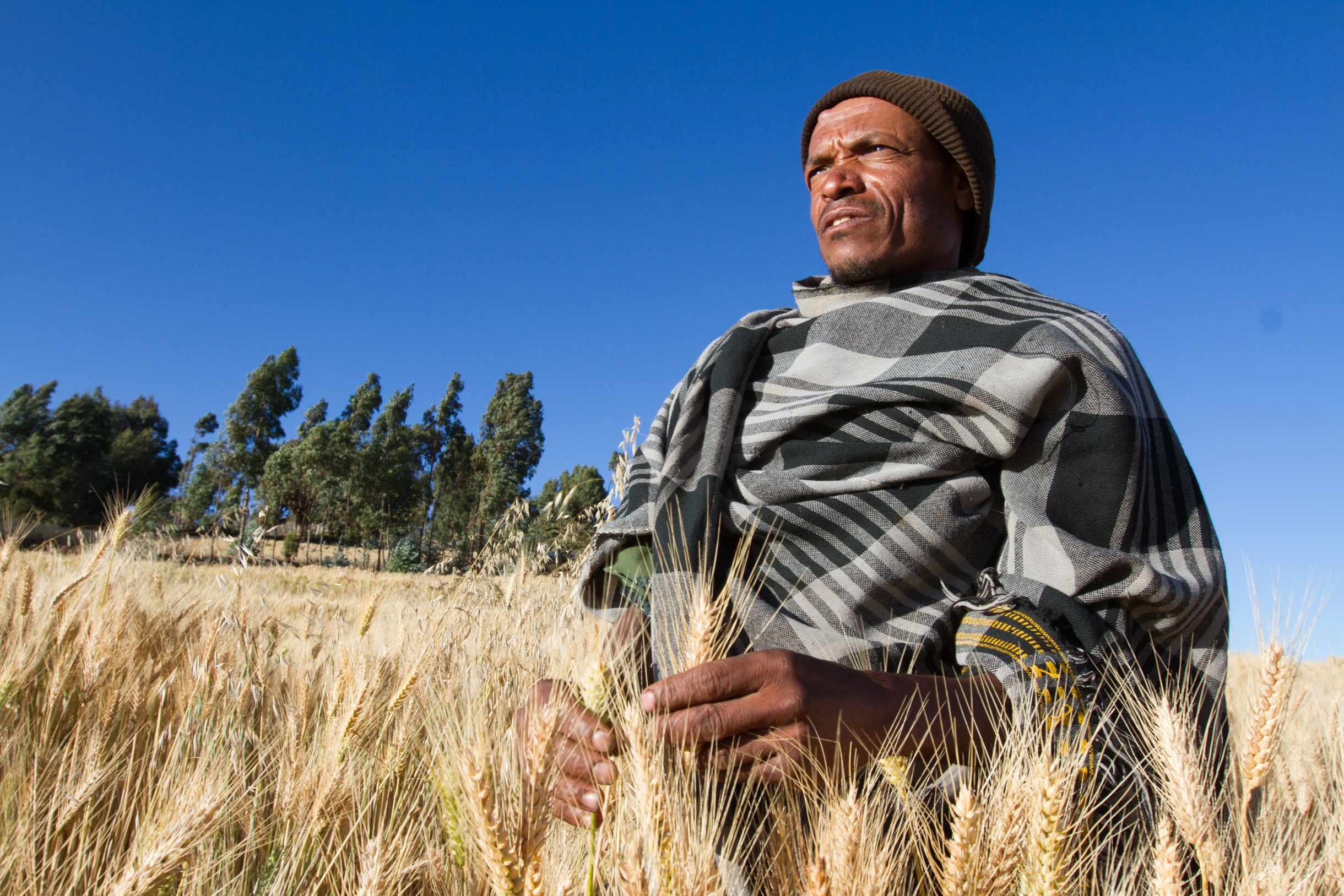
No. I think Susan Sontag has it wrong in this case. Way wrong.
For me, the camera was a liberation from the constraints of my usual writing work, which often keeps me head-bowed and scribbling laborious translations into my notebook while missing, I know, the chance to interact with the vibrancy of life. But through the lens of that camera, I was able to look more deeply, more deliberately at everything around me—that shaft of light, that carefully layered mud wall, that soft goat skin on which I sat—and to think about the farmers who live in this world and shape it with all their hard work.

And then, the best part of all, was sharing—instantly, through the display panel on the back of the camera—the pictures I shot: of Gebru Kahsay standing proudly in the doorway of the second story he was able to build onto his house; of Getie Adugna and his kids with their sheep; of Setie Meshehsa showing off a field of golden wheat.
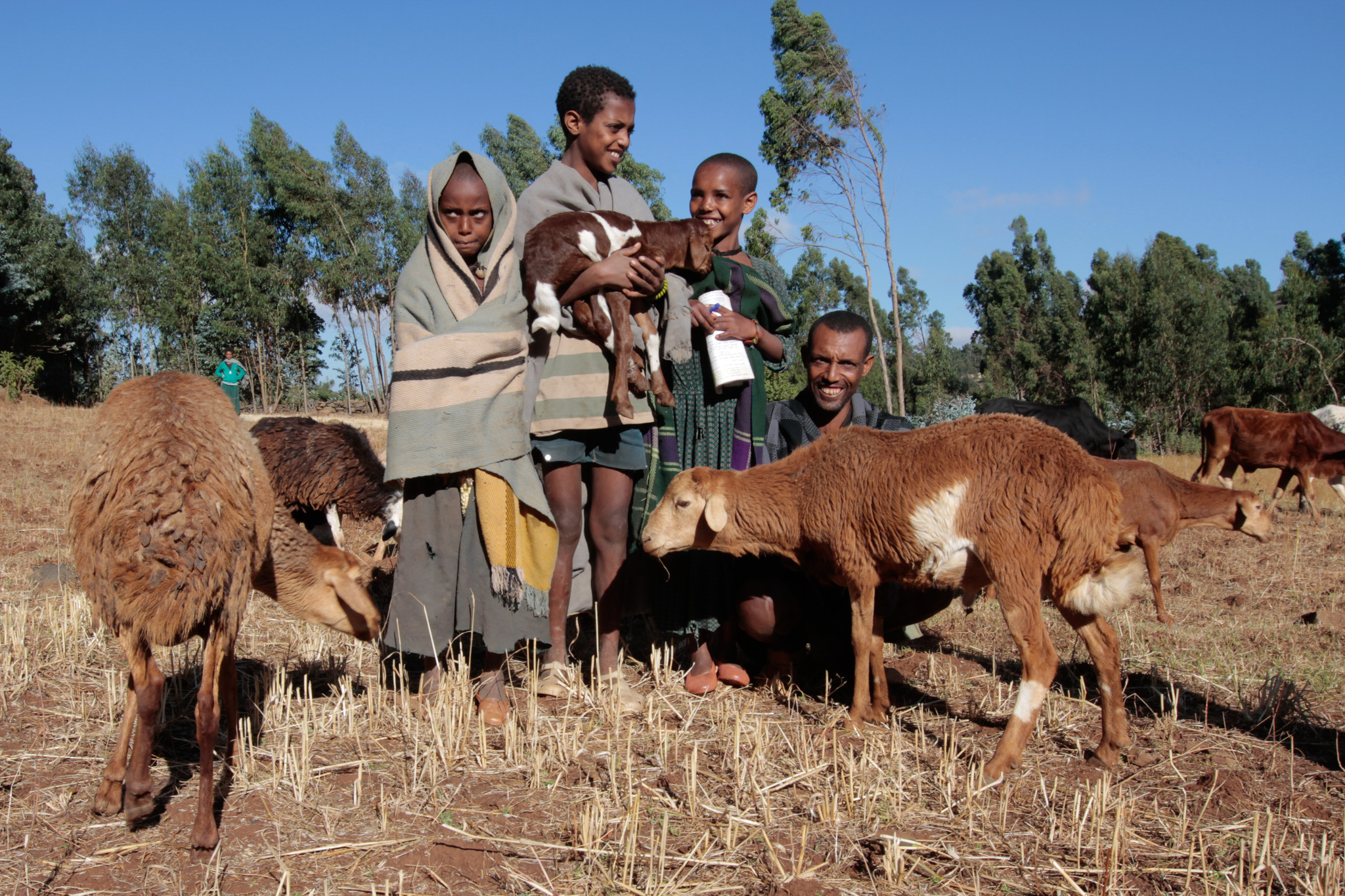
I think it was that moment of human interaction–when they saw their images on the screen and the delight we all shared in the smiles, the gestures, the gorgeous light captured in the click of the shutter– that made me something more than a tourist. A reporter? A documentarian? An Oxfam staffer visiting the people with whom we work? Whatever I was in that moment, this much I know: It was a privilege to be there and I’m so thankful for the photos that carry me back.
2015 has been a year in crisis—but you can bring hope to families around the world. Help people lift themselves out of poverty with your tax-deductible year-end gift today.